|
|
|
Sort Order |
|
|
|
Items / Page
|
|
|
|
|
|
|
| Srl | Item |
| 1 |
ID:
098963
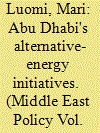

|
|
|
| 2 |
ID:
131068
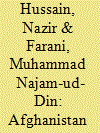

|
|
|
| 3 |
ID:
068958
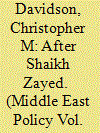

|
|
|
| 4 |
ID:
164399
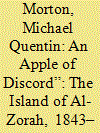

|
|
|
|
|
| Summary/Abstract |
Based on an extensive study of archival records, this article shows how a series of episodes in the history of the Trucial Coast — today’s United Arab Emirates (UAE) — helped to shape the direction of the area’s history. At face value, the island of al-Zorah appeared to have little to offer, but it nevertheless figured in the ambitions of the Wahhābīs, local rulers and the British, all of whom coveted it for one reason or another; the outcome of their struggles helped to set the seal on the future configuration of the UAE. While the article provides a valuable insight into Great Britain’s role in the area, it also reveals regional rivalries and inter-tribal tensions that still exist in the region today. However, the coming together of the UAE and Saudi Arabia, and their need to show solidarity in the face of current challenges, have obscured the historical differences that the story of al-Zorah represents.
|
|
|
|
|
|
|
|
|
|
|
|
|
|
|
|
| 5 |
ID:
128611
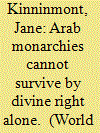

|
|
|
| 6 |
ID:
129288
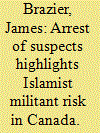

|
|
|
| 7 |
ID:
190348
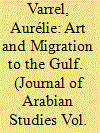

|
|
|
|
|
| Summary/Abstract |
This article presents an alternative narrative about the role of transnational migration in Gulf societies, that was developed in the contemporary art scene. It was presented in 2016–17 in the shape of an exhibition at the third Kochi-Muziris Biennale of Contemporary Art in Kerala, South India and explored how contemporary art can provide a space of freedom to address certain delicate issues in the Gulf context. The exhibition was put on by a collective based in Dubai, but was presented abroad at a Biennale located in the state of Kerala that is famous for its massive outmigration to the Middle East. The article examines how this context of production influenced the contents presented at the Biennale, and considers how it may have been received.
|
|
|
|
|
|
|
|
|
|
|
|
|
|
|
|
| 8 |
ID:
126413
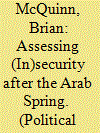

|
|
|
|
|
| Publication |
2013.
|
| Summary/Abstract |
The struggle to shape the narrative of Libya's postwar transition is being fought more intensely outside of the country than within it. The legitimacy of the military intervention in Libya by the West, supported by Qatar and the United Arab Emirates (UAE), has become tied to the perceived success or failure of the transition process: A positive outcome (i.e., the installation of liberal democracy) would legitimize NATO's intervention and, with it, the merits of interventionist military doctrines more broadly; a failure chastens such a policy. Putting aside questions about whether the legitimacy of the intervention should be primarily judged by the outcome of the transition, the practical consequence of this ulterior motive for judging the success or failure of the transition has warped international coverage of Libya. It has created incentives for observers to cherry-pick their portrayal of events so that they can present unambiguous conclusions about the progress of reforms and the transition in general (Rubin 2013; Wagner and Cafiero 2013). This myopia is unhelpful; it distorts international policy on Libya and results in scant analysis of the underlying (and often antithetic) social, political, or security dynamics shaping the transition. To remedy this, the following analysis examines the micropolitics of violence undergirding Libya's transition. As its basis John Gledhill's tripartite framework is used for understanding the causal pathways to collective violence during political transition (see "Editor's Introduction"). The contributions on Yemen and Egypt, which follow this article, also adopt Gledhill's framework, permitting comparison among these cases.
|
|
|
|
|
|
|
|
|
|
|
|
|
|
|
|
| 9 |
ID:
186788
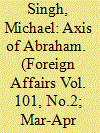

|
|
|
| 10 |
ID:
102605
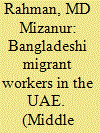

|
|
|
|
|
| Publication |
2011.
|
| Summary/Abstract |
This article examines the migration experiences of women and men under conditions of temporary migration. It has been amply shown that gender is relevant to most aspects of migration. However, despite the fundamental increase in research on gender and migration, a transnational space, where gender matters but which has not bee so thoroughly explored to date, is the experiences of women and men migrants in the migration process, especially under conditions of labour migration in the Gulf States. Focusing on Bangladeshi male and female migrant workers in the UAE, this research sheds light on gender-differentiated patterns of demographic profiles, recruitment and pre-departure costs, working and living experiences, wages, savings, and remittances, health care and leisure activities and reports substantial variation in migration experiences across gender lines.
|
|
|
|
|
|
|
|
|
|
|
|
|
|
|
|
| 11 |
ID:
152974
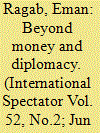

|
|
|
|
|
| Summary/Abstract |
The post-Arab Spring context created a window of opportunity for Saudi Arabia and the United Arab Emirates to reposition themselves in the region as countries capable of using not only money and diplomacy, but also military means in pursuing their regional policies. Their military interventions in Bahrain in 2011 and Yemen in 2015 uncover different aspects of the militarisation of their foreign policies. The permanence of the militarisation of their policies is, however, challenged by the type of interventionist state unfolding from these muscular policies, their domestic and regional legitimacy and the institutionalisation of this foreign policy pattern.
|
|
|
|
|
|
|
|
|
|
|
|
|
|
|
|
| 12 |
ID:
171986
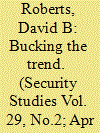

|
|
|
|
|
| Summary/Abstract |
The literature examining national militaries in the Arab world paints a near-universally bleak picture of their capabilities. Some argue issues rooted in “Arab culture”—so-called essentialist rationales—fatally undermine military effectiveness. Others assert that regime security concerns encourage leaders to actively politicize, coup-proof, and consequently weaken their military. This article challenges these literatures by demonstrating that United Arab Emirates (UAE) forces have repeatedly exemplified unusual levels of military effectiveness and sophistication in hostile campaigns. Using approaches from public policy studies (the Advocacy Coalition Framework), this paper investigates how the UAE military bucked the trend. The 1990 invasion of Kuwait was a “focusing event” that prompted a rethink of existing approaches. Catalyzed, a key “policy entrepreneur,” Abu Dhabi Crown Prince Mohammed bin Zayed Al-Nahyan, changed approaches to training, unified federal militaries, and tested forces in challenging operations. Such findings undercut lingering essentialist critiques of Arab militaries, provide a potential pathway for other states to emulate, demonstrate that secure and motivated leaders can overcome coup-proofing concerns, and showcase the fruitful pollination of methodologies from public policy to security studies.
|
|
|
|
|
|
|
|
|
|
|
|
|
|
|
|
| 13 |
ID:
161447
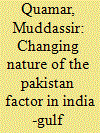

|
|
|
|
|
| Summary/Abstract |
India's relations with the Gulf countries started to flourish in the 1990s after India succeeded in de-hyphenating Pakistan from its policy toward the Gulf. Though Pakistan remained a factor as it continued to raise Kashmir and internal situation in India at multilateral forums such as OIC to evoke anti-India sentiments, it did not remain an underlying factor in as was the case during the Cold War era. In the contemporary dynamics, when India-Gulf relations are progressing toward strategic partnerships, Pakistan has re-emerged as a factor but its nature has changed. As highlighted in the joint statements issued during the Prime Minister Narendra Modi's visits to the Gulf countries since May 2014, India can now put pressure on Pakistan by highlighting its policy of sponsoring terrorism. This was evident when the Arab Gulf countries condemned the Pathankot (January 2016) and Uri (September 2016) terrorist attacks. India's relations with the Arab Gulf and other Middle Eastern countries are independent of their engagements with Pakistan and India-Pakistan tension, but New Delhi has stepped up efforts to raise the issue of cross-border terrorism and use of religion to incite terror activities against India during its engagements with these countries. It underlines the growing convergence between India and Arab Gulf countries over regional issues and the ability of India to isolate Pakistan over issues related to terrorism.
|
|
|
|
|
|
|
|
|
|
|
|
|
|
|
|
| 14 |
ID:
188358
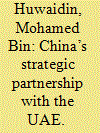

|
|
|
|
|
| Summary/Abstract |
This article investigates the strategic partnership between China and the UAE. It begins with an analysis of the concept of strategic partnership, based on the existing literature on the topic in international relations. Since there is no consensus as to the meaning of the term strategic partnership, the paper applies Thomas Wilkins’s model or framework to explain the UAE’s partnership with China. Wilkins is among the few to develop a conceptual framework or analytical model of the term. The paper then focuses on the foundation of the strategic partnership between the two countries, and goes on to analyze the prospects for the future of this partnership. The paper argues that although this partnership is strong, its future depends on two important factors. The first is UAE’s alliance with the United States, and the second, China’s relations with Iran. Driven as it is by economic considerations and a mutual desire for closer security and political cooperation, the partnership cannot, however, ignore these two important aspects.
|
|
|
|
|
|
|
|
|
|
|
|
|
|
|
|
| 15 |
ID:
179794


|
|
|
|
|
| Summary/Abstract |
Traditional understandings of Middle Eastern politics place tribes as critical supporters of ruling families; this dynamic is considered particularly strong within the smaller Gulf states, which are oftentimes even referred to as ‘bedouinocracies’. While tribes undoubtedly hold political capital throughout the Middle East, it is uncertain to what extent they remain clients of Gulf regimes or are in fact independent, and potentially oppositional, actors. This paper examines electoral outcomes for the Kuwaiti legislature, Qatari municipal council, and Emirati consultative council to understand the extent to which major tribal groups take collective action through electoral campaigns.
|
|
|
|
|
|
|
|
|
|
|
|
|
|
|
|
| 16 |
ID:
119132
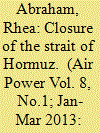

|
|
|
| 17 |
ID:
086781
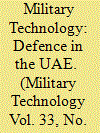

|
|
|
|
|
| Publication |
2009.
|
| Summary/Abstract |
The Presient of the UAE is the Supreme Commander of the Armed Forces. All decisions related to organising, equipping and training the Armed Forces fall under the responsibility of the Supreme defence Council.The Council is headed by the President and also includes the Deputy President , the Prime Minister, the Ministers of Foreign Affairs, Defence, Finance and Interior, as well as the Deputy Supreme Commander and the Chief of Staff.
|
|
|
|
|
|
|
|
|
|
|
|
|
|
|
|
| 18 |
ID:
060247
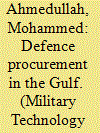

|
|
|
| 19 |
ID:
132058
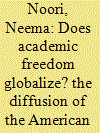

|
|
|
| 20 |
ID:
143407
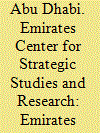

|
|
|
|
|
| Publication |
Abu Dhabi, ECSSR, 1999.
|
| Description |
301p.hbk
|
|
|
|
|
|
|
|
|
|
|
|
Copies: C:1/I:0,R:1,Q:0
Circulation
| Accession# | Call# | Current Location | Status | Policy | Location |
| 042446 | 030.95357/ABU 042446 | Main | On Shelf | Reference books | |
|
|
|
|
|
|
|
|
|